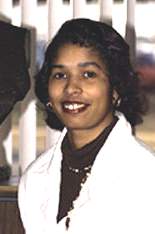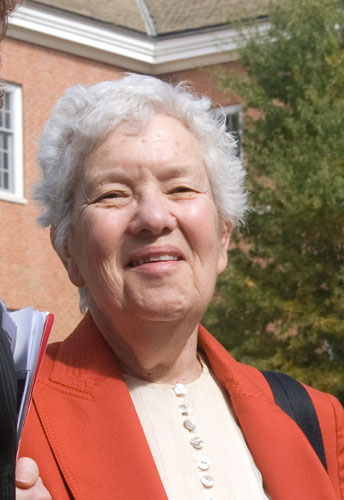
Orbital Path Podcasts with Michelle Thaller
Orbital Path 11: Black Hole Breakthroughs
Michelle Thaller talks with three leading scientists about black holes - how do we know they exist, where do they come from, and how can we learn more about them without going too close?

Orbital Path Podcasts with Michelle Thaller
Orbital Path 10: Done in the Sun
Michelle Thaller speaks with NASA's Alex Young about the space agency's impressive fleet of Sun-monitoring spacecraft — including the upcoming Solar Probe Plus.

Astrophotography: Tips & Techniques
Astrophotography: The Benefits of Dark Skies
Can you shoot deep-sky objects from your backyard? That depends - how much time do you have?

The Kavli Foundation Q&A: How Do Galaxies Die?
All galaxies are fated to "die" and stop making stars. The reason may lie with the supermassive black hole lurking in their cores.

Orbital Path Podcasts with Michelle Thaller
Orbital Path 9: Howdy, Neighbor!
For years astronomers anticipated a planet orbiting Proxima Centauri. Michelle Thaller talks with astrophysicist Patricia Boyd about NASA’s ongoing search for exoplanets and what’s next for exploring other worlds.

Orbital Path Podcasts with Michelle Thaller
Orbital Path 8: A Tale of Two Asteroids - Vesta and Ceres
Host Michelle Thaller speaks with Lucy McFadden, co-investigator of NASA’s Dawn Mission that traveled 130 million miles to orbit the asteroids Vesta and Ceres.

Orbital Path Podcasts with Michelle Thaller
Orbital Path 7: Chasing a Total Solar Eclipse
Host Michelle Thaller and eclipse-chaser Michael Kentrianakis talk about how an Alaska Airlines flight was diverted to view an eclipse, and where best to view the August 21, 2017, total solar eclipse.

Orbital Path Podcasts with Michelle Thaller
Orbital Path 6: A World Without Boundaries
Michelle Thaller speaks with NASA's Aprille Ericcson about her aerospace career path and how to recruit more women and minorities into engineering and space science.

Orbital Path Podcasts with Michelle Thaller
Orbital Path 5: Michelle and Her Mom
In this special Mother’s Day episode, Michelle talks with her mom about what it was like raising a space-obsessed daughter in Wisconsin and watching her grow into a scientist.

Orbital Path Podcasts with Michelle Thaller
Orbital Path 4: In Praise of Volcanoes
Astronomer Michelle Thaller talks with scientist Ashley Davies about the importance of volcanoes in the solar system and to life on Earth.

Orbital Path Podcasts with Michelle Thaller
Orbital Path 3: The Most Dramatic Sky
Dr. Michelle Thaller introduces us to Dr. Anna Moore, a scientist who travels to Antarctica to read the thermal (infrared) signals of a violent universe.

Orbital Path Podcasts with Michelle Thaller
Orbital Path 2: Mass Extinctions Get Personal
Host Dr. Michelle Thaller talks to physicist Lisa Randall, a theoretical particle physicist at Harvard, about what caused the dinosaurs’ extinction and the role dark matter plays in the universe and our world.

Orbital Path Podcasts with Michelle Thaller
Orbital Path 1: Must Be Aliens
Host Michelle Thaller talks with Bad Astronomy's Phil Plait about a conundrum: why are humans so quick to explain the unknowns of the cosmos as aliens? And why is this healthy imagination important in science?

Famous and Noteworthy Astronomers
Annie Jump Cannon: Star Classifier
Astronomer Annie Jump Cannon (1863-1941) classified hundreds of thousands of stars and created the system we use to understand stars today.

Astrophotography: Tips & Techniques
Astrophotography: Of Signals and Noise
You can't get rid of noise in your astrophotographs, but you can reduce its impact with more signal.

The Kavli Foundation Q&A: How are gravitational waves detected?
Courtesy of The Kavli Foundation, read the conversation between two 2016 Kavli Prize laureates as they discuss the struggle to detect gravitational waves and how their discovery is changing our understanding of the universe.

Famous and Noteworthy Astronomers
Arthur B. C. Walker II: X-ray Astrophysicist
African American physicist, Arthur B.C. Walker Jr. (1936-2001), helped develop solar telescopes to image the Sun’s corona.

Famous and Noteworthy Astronomers
Vera Rubin: Dark Matter Detective
American astronomer Vera Rubin (1928 - ) measured how fast galaxies rotate, delivering decisive evidence for the existence of dark matter.

Astrophotography with Jerry Lodriguss
How to Photograph a Meteor Shower: Capturing the Perseids
Learn how to photograph a meteor shower with these step-by-step instructions, as well as advice for the advanced imager.

What are the Phases of the Moon?
The phases of the Moon are determined by the relative positions of the Moon, Earth, and Sun.
